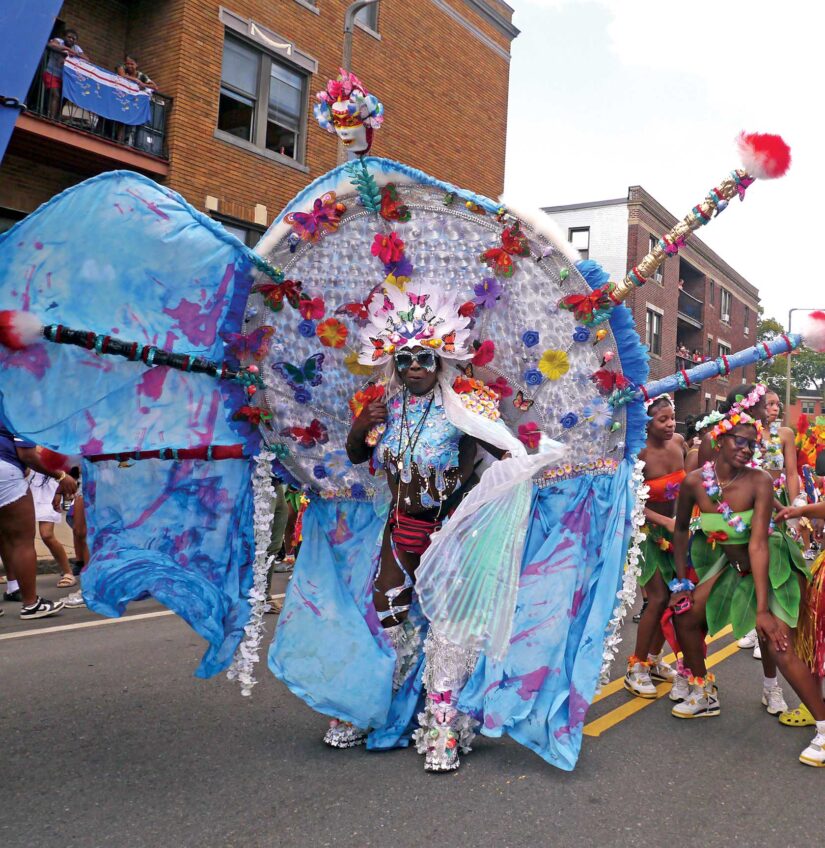Bankruptcy judge rejects Charles Street AME church’s repayment proposal to OneUnited Bank, creditors
Bankruptcy Judge Frank Bailey readily admitted that he wanted to give Charles Street AME church every benefit of the doubt in their contentious battle with OneUnited Bank.
“Given the vital mission of Charles Street — vital to its members and its community — the debtor must be afforded considerable latitude in achieving financial stability,” Bailey wrote in his 73-page decision last week. “The court will indulge all reasonable efforts to ensure reorganization.”
But not even Bailey could approve Charles Street’s plan to repay about $5 million in debt to the bank and other creditors. As proposed, he wrote, the repayment plan would leave Charles Street “on the edge of insolvency for two decades — a congregation living for its debt.”
With about $5,000 in cash and running monthly operating deficits of as much as $20,000, Charles Street’s plan relied heavily on completing its proposed Roxbury Renaissance Center. Located near the church in Grove Hall, the center would then be used for events and other functions in which the church would receive rental income to repay its outstanding debt.
But the church’s numbers were what bank officials characterized as speculative and unrealistic. The church estimated that it would have annual expenses of $770,000 to operate the center while generating annual revenues of only $200,000. The $570,000 shortfall, according to Charles Street’s plan, would come from charitable giving to the church.
None of these figures include repayment of debt, a point that Judge Bailey highlighted in his decision. In one version, Charles Street had proposed repaying OneUnited $27,000 per month over a 20-year period.
“It is unrealistic to expect the [center] to support debt service at all,” Judge Bailey wrote. “At best it will help defray its own expenses. Debt service on the restructured loan would likely be borne entirely by Charles Street, without help from the [center].”
According to Charles Street’s plan, help was expected to come from Bain Capital and the church’s regional board, the First Episcopal District of the African Methodist Episcopal Church, based in Philadelphia.
The two partners had proposed giving Charles Street $1.5 million, half of which would come from Bain Capital and the other half from the First District, and that money was to be used to complete construction on the Renaissance Center.
In exchange, the court was asked to release the First District from its obligation as co-signer of Charles Street’s original $3.6 million construction loan.
Judge Bailey rejected the proposed release and ruled that the First District was responsible to meet its obligation. When the loan was originally approved, the First District claimed it had $23.6 million in cash. OneUnited made the loan based on the alleged strength of the First District.
“Charles Street has made little effort to demonstrate First District’s credit worthiness and willingness, going forward, to supplement Charles Street’s efforts and perform when called upon,” Bailey wrote. “In short, the plan does not propose to pay the full debt on which the First District is obligated.”
Bailey’s ruling requires Charles Street to develop another repayment plan. It also requires a court-appointed examiner to monitor the church’s financial activities.
Those often embarrassing activities and questionable accounting practices became public during bankruptcy hearings last summer in which Charles Street Pastor Gregory Groover admitted that he had diverted $875,000 in money restricted for use to a pastoral program funded by the Lilly Foundation to pay for the church’s operating costs.
Despite those diversions, the church was unable to pay its bills, including utilities and insurance. Bailey wrote that its accounting practices “have left something to be desired.”
“While the church is entitled to its own standards for its own internal purposes — the court and creditors are entitled to more reliability and clarity,” Bailey wrote.
“ Therefore, especially as Charles Street’s cash reserves have dwindled to nothing, it would be useful for an examiner to review Charles Street’s monthly operating revenues going forward.”
The church is not without assets. The historic church building is valued at $1.3 million. The nearby church-owned storefront properties are valued at $400,000 — despite their deteriorating condition. In addition, the church owns a house in Milton valued at $380,000 and its old parsonage building and parking lot are valued at $290,000.
The uncompleted Renaissance Center is valued at nearly $2 million.
But as Judge Bailey pointed out repeatedly in his decision, the church is saddled with excessive debt. In addition to OneUnited, Charles Street owes about $630,000 to Thomas Construction Company, the Dorchester firm hired to build its proposed Renaissance Center. Another $450,000 is owed to Tremont Credit Union for a loan to repair the church’s roof.
The majority of Charles Street’s debt is owed to OneUnited, the nation’s largest black-owned bank.
The $3.6 million construction loan became due on June 1, 2008, and despite a total of five extensions, the church was unable to satisfy its debt by Sept. 1, 2009. A year later, on Aug. 17, 2010, OneUnited sued in Suffolk Superior Court for breach of contract. Also named in the suit was Charles Street AME’s co-signer, the First District Church.
Charles Street had also borrowed another $1.1 million, separate from the $3.6 million construction loan. That loan is also in default. To forestall foreclosure, Charles Street later filed for bankruptcy protection.
Melvin B. Miller, Editor, is a member of the Board of Directors of One United Bank.






